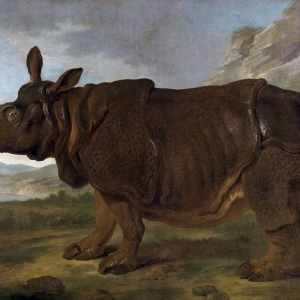Here’s yet another reason teens should not experiment with e-cigarettes. Just one vape session can create tissue-damaging free radicals, new data show.
Vaped nicotine is now one of the most common drugs by used U.S. teens. Last year, nearly one in three high schoolers used e-cigarettes daily or almost daily. It’s easy to think that only people who vape regularly face any health risks. But a new study finds that a single vape session damages cells. And it causes the type of damage that underlies many long-term diseases. Holly Middlekauff is a heart specialist at the University of California, Los Angeles. This doctor is interested in behaviors that can lead to heart trouble later in life. Vaping is among them. But there had been little research on the near-term health impacts of vaping. So Middlekauff worked with a team that recruited 32 healthy young adults for a study. Most of these people were in their early to mid-20s. Within the group, about one-third had smoked conventional cigarettes for more than a year. Another third had used e-cigarettes — vaped — for at least a year. A third group had not used either nicotine product. Educators and Parents, Sign Up for The Cheat Sheet Weekly updates to help you use Science News for Students in the learning environment GO Each recruit came to the research lab on two separate days. On one day, the participant puffed on an e-cigarette. At the second visit, they puffed on an empty straw. (This was the control: They went through the same motions as vaping but didn’t inhale the chemicals.) The team randomly assigned which visit for each person would be a control or vaping session. At each visit, the research team also collected blood samples. One was drawn right after someone arrived. Four hours after the vaping session was over, the scientists drew blood again. The team extracted immune cells from the blood. The researchers then looked for signs of oxidative stress. “Oxidative stress refers to molecules that contain oxygen in a special form,” Middlekauff explains. Called free radicals, these molecules are unstable. “They react with, or even attack, other compounds,” she says. At times, that can be helpful. Free radicals can attack germs, for example. Explainer: Ions and radicals in our world “But if the oxidative stress becomes imbalanced or excessive, it can be harmful and attack proteins and fats that are part of our cells,” she notes. Over time, that damage can lead to all types of health problems. Free-radical damage, she points out, can lead to heart and lung disease, cancer, premature aging and diseases such as dementia. People who had never smoked had low measures of oxidative stress before vaping. Long-term smokers and vapers had higher levels. After vaping, nonsmokers experienced high levels of free radicals in their immune cells. “Up to four times the levels [compared to] before vaping,” Middlekauff says. That didn’t happen after puffing on the empty straw. Long-term users didn’t show a big increase in free radicals when they vaped. That’s probably because their starting levels were already high, the team reports in the August 9 JAMA Pediatrics. The take home for teens Last year, some 3.6 million U.S. middle- and high-school students vaped. Janet Woodcock is a doctor and acting commissioner of the U.S. Food and Drug Administration. She reported the number at a June 23 congressional hearing in Washington, D.C. She added that “almost 40 percent of high school students using e-cigarettes were using them on 20 or more days out of the month.” The new findings by Middlekauff’s team now point to health impacts that anyone who even experiments with vaping can encounter. And though her study was done in adults, “the results would be expected to be the same in teenagers,” Middlekauff says. That’s why her team published its findings in a journal aimed at pediatricians. Indeed, she notes, teens are the biggest group that has been experimenting with vaping. “This study shows that even a short vaping session might have long-term consequences,” says Lucy Popova. She is a tobacco and health researcher at Georgia State University in Atlanta. She was not involved with the study. “Teens are smart,” she says. “They make their own decisions. And studies like [this] give them information to base the decisions on.” Sharing such data is an important way “to counteract the ads and social-media information that often presents vapes as cool harmless products,” she says. Popova and Middlekauff both hope teens take note. “Even a little bit of vaping can lead to real, dramatic and unambiguous adverse effects on the body,” Middlekauff says. Power Words More About Power Words ad: Short for advertisement. It may appear in any medium (print, online or broadcast) and has been prepared to sell someone on a product, idea or point of view. behavior: The way something, often a person or other organism, acts towards others, or conducts itself. cancer: Any of more than 100 different diseases, each characterized by the rapid, uncontrolled growth of abnormal cells. The development and growth of cancers, also known as malignancies, can lead to tumors, pain and death. cell: The smallest structural and functional unit of an organism. Typically too small to see with the unaided eye, it consists of a watery fluid surrounded by a membrane or wall. Depending on their size, animals are made of anywhere from thousands to trillions of cells. chemical: A substance formed from two or more atoms that unite (bond) in a fixed proportion and structure. For example, water is a chemical made when two hydrogen atoms bond to one oxygen atom. Its chemical formula is H2O. Chemical also can be an adjective to describe properties of materials that are the result of various reactions between different compounds. control: (n.) A part of an experiment where there is no change from normal conditions. The control is essential to scientific experiments. It shows that any new effect is likely due only to the part of the test that a researcher has altered. For example, if scientists were testing different types of fertilizer in a garden, they would want one section of it to remain unfertilized, as the control. Its area would show how plants in this garden grow under normal conditions. And that gives scientists something against which they can compare their experimental data. dementia: A type of mental disorder caused by disease or injury that causes people to gradually lose all or part of their memory. It may start out temporary and build to a permanent condition where the ability to reason also is impaired. e-cigarette: (short for electronic cigarette) Battery-powered device that disperses nicotine and other chemicals as tiny airborne particles that users can inhale. They were originally developed as a safer alternative to cigarettes that users could use as they tried to slowly break their addiction to the nicotine in tobacco products. These devices heat up a flavored liquid until it evaporates, producing vapors. People use these devices are known as vapers. extract: (v.) To separate one chemical (or component of something) from a complex mix. (noun) A substance, often in concentrated form, that has been removed from its natural source. free radical: (in chemistry) A molecule (typically highly reactive and short-lived) having one or more unpaired outer electrons. It will attempt to steal electrons to make itself whole again through a process known as oxidation. high school: A designation for grades nine through 12 in the U.S. system of compulsory public education. High-school graduates may apply to colleges for further, advanced education. immune: (adj.) Having to do with immunity. (v.) Able to ward off a particular infection. Alternatively, this term can be used to mean an organism shows no impacts from exposure to a particular poison or process. More generally, the term may signal that something cannot be hurt by a particular drug, disease or chemical. molecule: An electrically neutral group of atoms that represents the smallest possible amount of a chemical compound. Molecules can be made of single types of atoms or of different types. For example, the oxygen in the air is made of two oxygen atoms (O2), but water is made of two hydrogen atoms and one oxygen atom (H2O). nicotine: A colorless, oily chemical produced in tobacco and certain other plants. It creates the “buzz” associated with smoking. Highly addictive, nicotine is the substance that makes it hard for smokers to give up their use of cigarettes. The chemical is also a poison, sometimes used as a pesticide to kill insects and even some invasive snakes or frogs. oxidative stress: A condition in a living organism where more oxidative chemicals — broadly known as free radicals — are being formed or affecting cells than can be managed by the body’s antioxidant defense system. Some diseases or injuries increase the production of free radicals, leading to tissue damage. oxygen: A gas that makes up about 21 percent of Earth's atmosphere. All animals and many microorganisms need oxygen to fuel their growth (and metabolism). pediatrics: A field of medicine that has to do with children and especially child health. A doctor who works in this field is known as a pediatrician. premature: Too early; before something should occur. Premature births, for instance, are when babies are born weeks or months early — potentially before they are ready for life on their own, outside their mom’s protective womb. protein: A compound made from one or more long chains of amino acids. Proteins are an essential part of all living organisms. They form the basis of living cells, muscle and tissues; they also do the work inside of cells. Among the better-known, stand-alone proteins are the hemoglobin (in blood) and the antibodies (also in blood) that attempt to fight infections. Medicines frequently work by latching onto proteins. recruit: (noun) New member of a group or human trial. (verb) To enroll a new member into a research trial. Some may receive money or other compensation for their participation, particularly if they enter the trial healthy. smoking: A term for the deliberate inhalation of tobacco smoke from burning cigarettes. stress: (in biology) A factor — such as unusual temperatures, movements, moisture or pollution — that affects the health of a species or ecosystem. (in psychology) A mental, physical, emotional or behavioral reaction to an event or circumstance (stressor) that disturbs a person or animal’s usual state of being or places increased demands on a person or animal; psychological stress can be either positive or negative. (in physics) Pressure or tension exerted on a material object. vaping: (v. to vape) A slang term for the use of e-cigarettes because these devices emit vapor, not smoke. People who do this are referred to as vapers.
Vaped nicotine is now one of the most common drugs by used U.S. teens. Last year, nearly one in three high schoolers used e-cigarettes daily or almost daily. It’s easy to think that only people who vape regularly face any health risks. But a new study finds that a single vape session damages cells. And it causes the type of damage that underlies many long-term diseases. Holly Middlekauff is a heart specialist at the University of California, Los Angeles. This doctor is interested in behaviors that can lead to heart trouble later in life. Vaping is among them. But there had been little research on the near-term health impacts of vaping. So Middlekauff worked with a team that recruited 32 healthy young adults for a study. Most of these people were in their early to mid-20s. Within the group, about one-third had smoked conventional cigarettes for more than a year. Another third had used e-cigarettes — vaped — for at least a year. A third group had not used either nicotine product. Educators and Parents, Sign Up for The Cheat Sheet Weekly updates to help you use Science News for Students in the learning environment GO Each recruit came to the research lab on two separate days. On one day, the participant puffed on an e-cigarette. At the second visit, they puffed on an empty straw. (This was the control: They went through the same motions as vaping but didn’t inhale the chemicals.) The team randomly assigned which visit for each person would be a control or vaping session. At each visit, the research team also collected blood samples. One was drawn right after someone arrived. Four hours after the vaping session was over, the scientists drew blood again. The team extracted immune cells from the blood. The researchers then looked for signs of oxidative stress. “Oxidative stress refers to molecules that contain oxygen in a special form,” Middlekauff explains. Called free radicals, these molecules are unstable. “They react with, or even attack, other compounds,” she says. At times, that can be helpful. Free radicals can attack germs, for example. Explainer: Ions and radicals in our world “But if the oxidative stress becomes imbalanced or excessive, it can be harmful and attack proteins and fats that are part of our cells,” she notes. Over time, that damage can lead to all types of health problems. Free-radical damage, she points out, can lead to heart and lung disease, cancer, premature aging and diseases such as dementia. People who had never smoked had low measures of oxidative stress before vaping. Long-term smokers and vapers had higher levels. After vaping, nonsmokers experienced high levels of free radicals in their immune cells. “Up to four times the levels [compared to] before vaping,” Middlekauff says. That didn’t happen after puffing on the empty straw. Long-term users didn’t show a big increase in free radicals when they vaped. That’s probably because their starting levels were already high, the team reports in the August 9 JAMA Pediatrics. The take home for teens Last year, some 3.6 million U.S. middle- and high-school students vaped. Janet Woodcock is a doctor and acting commissioner of the U.S. Food and Drug Administration. She reported the number at a June 23 congressional hearing in Washington, D.C. She added that “almost 40 percent of high school students using e-cigarettes were using them on 20 or more days out of the month.” The new findings by Middlekauff’s team now point to health impacts that anyone who even experiments with vaping can encounter. And though her study was done in adults, “the results would be expected to be the same in teenagers,” Middlekauff says. That’s why her team published its findings in a journal aimed at pediatricians. Indeed, she notes, teens are the biggest group that has been experimenting with vaping. “This study shows that even a short vaping session might have long-term consequences,” says Lucy Popova. She is a tobacco and health researcher at Georgia State University in Atlanta. She was not involved with the study. “Teens are smart,” she says. “They make their own decisions. And studies like [this] give them information to base the decisions on.” Sharing such data is an important way “to counteract the ads and social-media information that often presents vapes as cool harmless products,” she says. Popova and Middlekauff both hope teens take note. “Even a little bit of vaping can lead to real, dramatic and unambiguous adverse effects on the body,” Middlekauff says. Power Words More About Power Words ad: Short for advertisement. It may appear in any medium (print, online or broadcast) and has been prepared to sell someone on a product, idea or point of view. behavior: The way something, often a person or other organism, acts towards others, or conducts itself. cancer: Any of more than 100 different diseases, each characterized by the rapid, uncontrolled growth of abnormal cells. The development and growth of cancers, also known as malignancies, can lead to tumors, pain and death. cell: The smallest structural and functional unit of an organism. Typically too small to see with the unaided eye, it consists of a watery fluid surrounded by a membrane or wall. Depending on their size, animals are made of anywhere from thousands to trillions of cells. chemical: A substance formed from two or more atoms that unite (bond) in a fixed proportion and structure. For example, water is a chemical made when two hydrogen atoms bond to one oxygen atom. Its chemical formula is H2O. Chemical also can be an adjective to describe properties of materials that are the result of various reactions between different compounds. control: (n.) A part of an experiment where there is no change from normal conditions. The control is essential to scientific experiments. It shows that any new effect is likely due only to the part of the test that a researcher has altered. For example, if scientists were testing different types of fertilizer in a garden, they would want one section of it to remain unfertilized, as the control. Its area would show how plants in this garden grow under normal conditions. And that gives scientists something against which they can compare their experimental data. dementia: A type of mental disorder caused by disease or injury that causes people to gradually lose all or part of their memory. It may start out temporary and build to a permanent condition where the ability to reason also is impaired. e-cigarette: (short for electronic cigarette) Battery-powered device that disperses nicotine and other chemicals as tiny airborne particles that users can inhale. They were originally developed as a safer alternative to cigarettes that users could use as they tried to slowly break their addiction to the nicotine in tobacco products. These devices heat up a flavored liquid until it evaporates, producing vapors. People use these devices are known as vapers. extract: (v.) To separate one chemical (or component of something) from a complex mix. (noun) A substance, often in concentrated form, that has been removed from its natural source. free radical: (in chemistry) A molecule (typically highly reactive and short-lived) having one or more unpaired outer electrons. It will attempt to steal electrons to make itself whole again through a process known as oxidation. high school: A designation for grades nine through 12 in the U.S. system of compulsory public education. High-school graduates may apply to colleges for further, advanced education. immune: (adj.) Having to do with immunity. (v.) Able to ward off a particular infection. Alternatively, this term can be used to mean an organism shows no impacts from exposure to a particular poison or process. More generally, the term may signal that something cannot be hurt by a particular drug, disease or chemical. molecule: An electrically neutral group of atoms that represents the smallest possible amount of a chemical compound. Molecules can be made of single types of atoms or of different types. For example, the oxygen in the air is made of two oxygen atoms (O2), but water is made of two hydrogen atoms and one oxygen atom (H2O). nicotine: A colorless, oily chemical produced in tobacco and certain other plants. It creates the “buzz” associated with smoking. Highly addictive, nicotine is the substance that makes it hard for smokers to give up their use of cigarettes. The chemical is also a poison, sometimes used as a pesticide to kill insects and even some invasive snakes or frogs. oxidative stress: A condition in a living organism where more oxidative chemicals — broadly known as free radicals — are being formed or affecting cells than can be managed by the body’s antioxidant defense system. Some diseases or injuries increase the production of free radicals, leading to tissue damage. oxygen: A gas that makes up about 21 percent of Earth's atmosphere. All animals and many microorganisms need oxygen to fuel their growth (and metabolism). pediatrics: A field of medicine that has to do with children and especially child health. A doctor who works in this field is known as a pediatrician. premature: Too early; before something should occur. Premature births, for instance, are when babies are born weeks or months early — potentially before they are ready for life on their own, outside their mom’s protective womb. protein: A compound made from one or more long chains of amino acids. Proteins are an essential part of all living organisms. They form the basis of living cells, muscle and tissues; they also do the work inside of cells. Among the better-known, stand-alone proteins are the hemoglobin (in blood) and the antibodies (also in blood) that attempt to fight infections. Medicines frequently work by latching onto proteins. recruit: (noun) New member of a group or human trial. (verb) To enroll a new member into a research trial. Some may receive money or other compensation for their participation, particularly if they enter the trial healthy. smoking: A term for the deliberate inhalation of tobacco smoke from burning cigarettes. stress: (in biology) A factor — such as unusual temperatures, movements, moisture or pollution — that affects the health of a species or ecosystem. (in psychology) A mental, physical, emotional or behavioral reaction to an event or circumstance (stressor) that disturbs a person or animal’s usual state of being or places increased demands on a person or animal; psychological stress can be either positive or negative. (in physics) Pressure or tension exerted on a material object. vaping: (v. to vape) A slang term for the use of e-cigarettes because these devices emit vapor, not smoke. People who do this are referred to as vapers.









